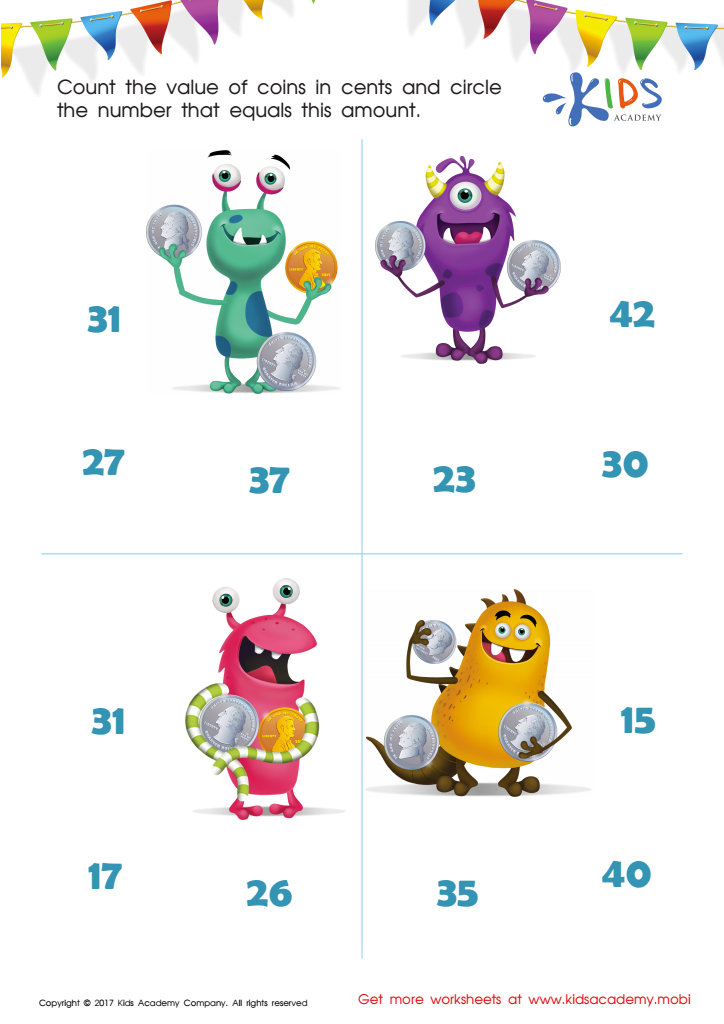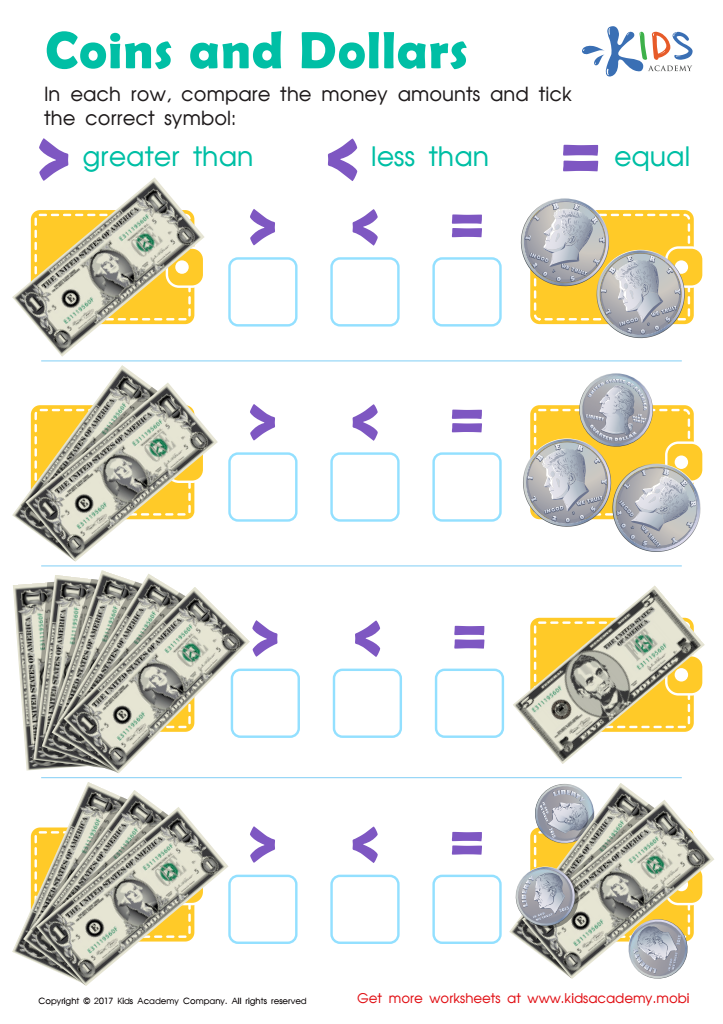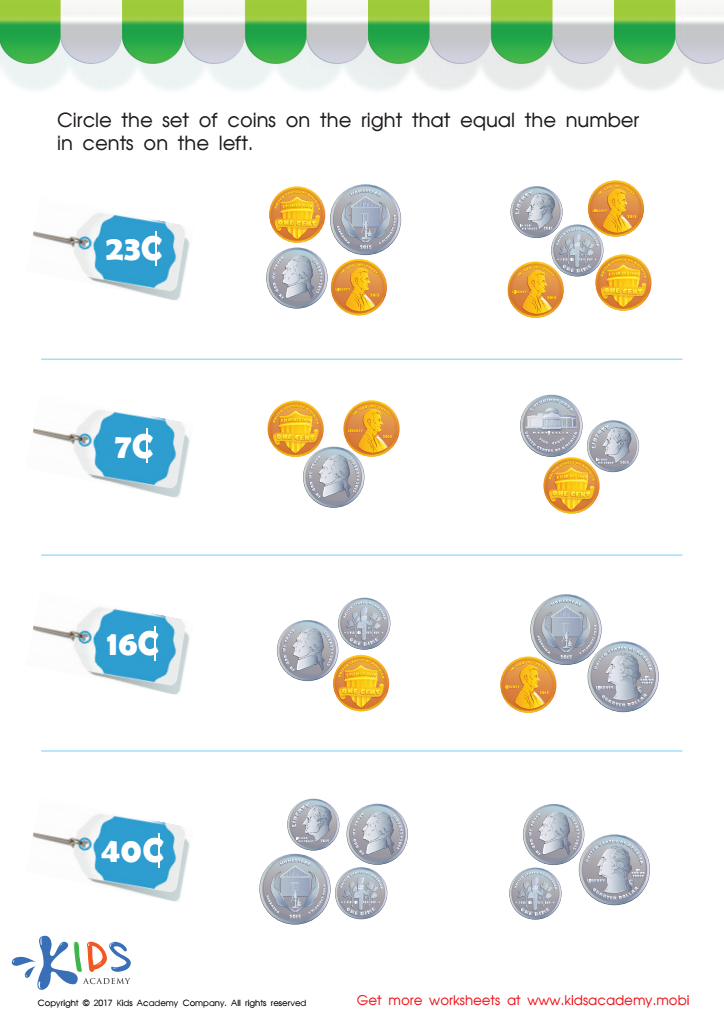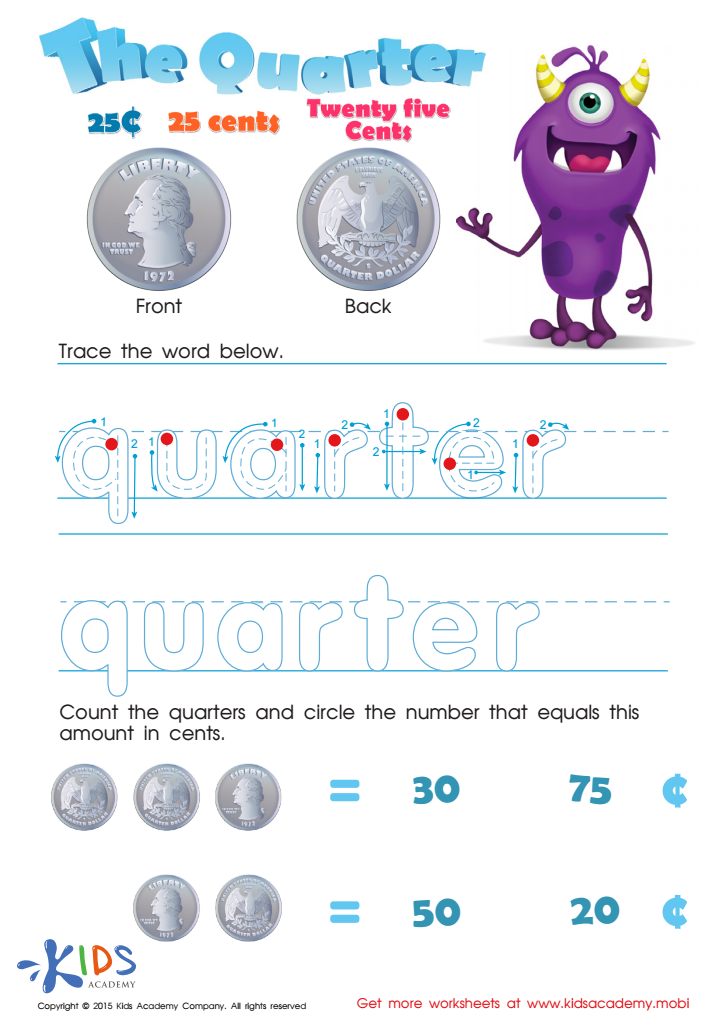Counting practice Extra Challenge Money Worksheets for Ages 3-8
4 filtered results
-
From - To
Enhance your child's math skills with our Counting Practice Extra Challenge Money Worksheets, specially designed for ages 3-8. These engaging worksheets focus on recognizing, counting, and understanding money, providing a fun and educational experience. Each activity presents extra challenges to stimulate young learners and build their confidence with counting coins and bills. Perfect for early grade students, these printables align with learning standards and help children develop essential math skills while having fun. Whether at home or in the classroom, boost their abilities with our creative and interactive worksheets. Start counting moments of success today!


How Many Coins Money Worksheet


Money: Coins Dollars Printable


Picking the Coins You Need Money Worksheet


Twenty Five Cents or the Quarter Money Worksheet
Parents and teachers should care about "Counting Practice Extra Challenge Money" for children aged 3-8 because it lays the foundation for essential math skills and financial literacy from an early age. For young children, interacting with physical representations of money during counting practice enhances their number sense, improves fine motor skills, and helps them associate numeric values with real-world applications. This hands-on learning encourages cognitive development, critical thinking, and problem-solving skills, which are fundamental for academic success.
Additionally, introducing the concept of money through play encourages children to grasp the importance of financial responsibility, budgeting, saving, and the value of different denominations. This early exposure fosters positive attitudes towards math and financial management, reducing math anxiety and promoting a growth mindset.
Moreover, such engaging activities can be tailored to different learning paces and styles, ensuring inclusivity. As children manipulate items, engage in pretend transactions, and progressively handle more complex amounts, they build confidence and self-esteem. Sharing these learning experiences with peers or adults also provides social interactions that strengthen communication and collaborative skills.
Overall, nurturing these foundational skills through counting practice with monetary elements helps children build a robust understanding of numbers, fosters financial awareness, and sets the stage for lifelong learning and responsible financial behavior.
 Assign to My Students
Assign to My Students




















